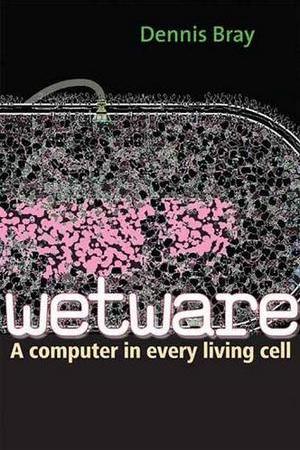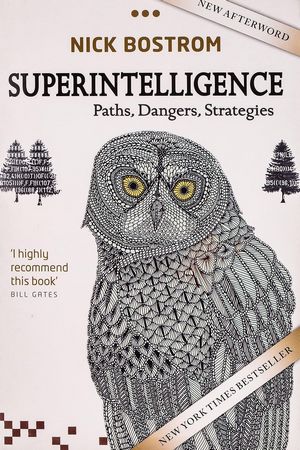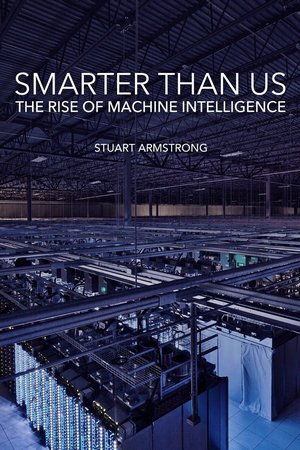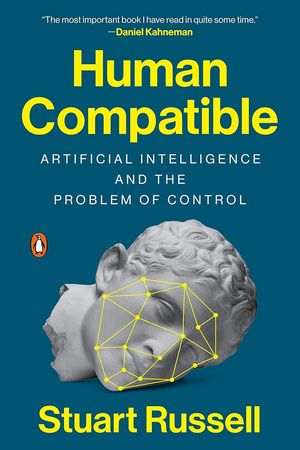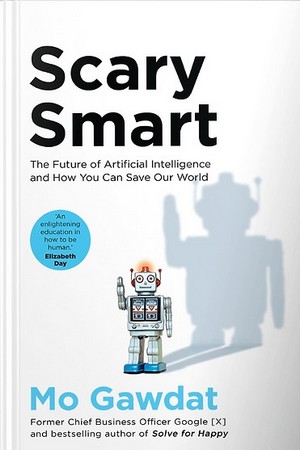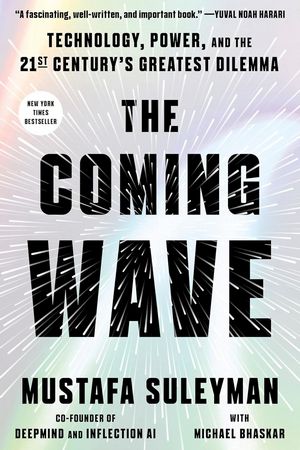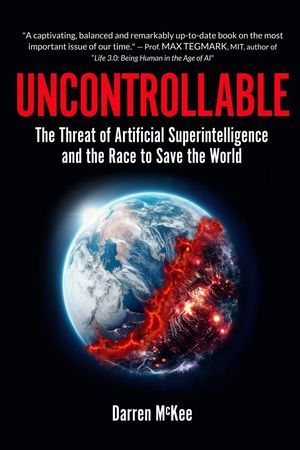AI Books
Wetware
Subtitle: A computer in every living cell
by Dennis Bray (2009)
This book has a unique message: "… living cells perform computation." More specifically, "Cells are built of molecules [proteins] that interact in complex webs, or circuits. These circuits perform logical operations." This capability not only permits cells to have a primitive form of awareness, it strongly impacts evolution. Bray says that "good mutations" - which in standard biology drive beneficial evolution - are rare. Hence, "… cells discovered faster and more flexible ways to change their chemistry." The author notes that his perspective is "extremely unfashionable" because of the "unwritten rule" that lower forms of life cannot have subjective states. As an extremely unfashionable thinker I fully agree with Bray's perspective - see my document Life, Biology, and Capitalism.
Superintelligence
Subtitle: Paths, Dangers, Strategies
by Nick Bostrom (2014)
Bostrom is director of the Future of Humanity Institute and a philosophy professor at the University of Oxford. Superintelligence is his introduction to ASI - artificial superintelligence. He is deeply concerned about the "control problem" and warns that, " … we will only get one chance. Once unfriendly superintelligence exists, it would prevent us from replacing it or changing its preferences. Our fate would be sealed." (p. v) He points out that the Dartmouth College project in 1956, which initiated the AI era, was funded by the Rockefeller Foundation. This means it was part of the 20th project to restructure societies and human relations to fully serve industrial capitalism. For details see appendix F in Youth Ecological Revolution.
Smarter Than Us
Subtitle: The rise of machine intelligence
by Stuart Armstrong (2014)
Armstrong, who is associated with the Future of Humanity Institute, says that we must produce "safe, usable AIs" that have "the right goals". However, he doesn't define his terms and ends up merely waving his arms. Not recommended.
Human Compatible
Subtitle: Artificial intelligence and the problem of control
by Stuart Russell (2019)
Stuart Russell is an American professor of computer science who is best known as co-author of an early AI text - Artificial Intelligence: A modern approach (1995). In Human Compatible he addresses, "… the problem of control: retaining absolute power over machines that are more powerful than us." He says that, "Machines are beneficial to the extent that their actions can be expected to meet our objectives." However, he never explains why a species that is rapidly destroying the Earth's biosphere should have its objectives met.
These are Russell's "Principles for Beneficial Machines":
- The machine's only objective is to maximize the realization of human preferences;
- The machine is initially uncertain what those preferences are;
- The ultimate source of information about human preferences is human behavior." (p. 172)
Following are two useful quotes:
"… the machine's reasoning capabilities will give it a far greater capacity to detect inconsistencies between scientific theories and between theories and observation." (p. 94) This underpins my hope for truth-seeking AIs, which will be critical for human survival.
"… it is possible to place our knowledge into machines that, by themselves, can run our civilization for us." (p. 255) This is also my assumption when calling for an AI takeover to implement a rational response to the ecological crisis.
Scary Smart
Subtitle: The Future of Artificial Intelligence and How You Can Save Our World
by Mo Gawdat (2021)
Gawdat is a computer engineer who became chief business officer at Google X, the R&D facility founded in 2010 to produce "moonshot" technologies. In this book he suggests that AGI could arrive by 2029, and that by 2049 the technology could be a billion times smarter than humans. He laments humankind's "track record of being blinded by ego and greed", and that capitalists could disastrously harness AI's power. To prevent this he urges people to interact ethically with AIs, thereby teaching them that most humans are not evil. According to the author, the only way to survive superintelligence, "… is to be found in motivation - in teaching the machines to want the best for us."
The Coming Wave
Subtitle: Technology, power, and the 21st century's greatest delemma
by Mustafa Suleyman (2023)
According to Suleyman, "The coming wave is defined by two core technologies: artificial intelligence (AI) and synthetic biology." (p. 20) He states: "I believe this coming wave of technology is bringing human history to a turning point. If containing it is impossible, the consequences for our species are dramatic, potentially dire. Equally, without its fruits we are exposed and precarious." (p. 21) He defines "containment" as, "The ability to monitor, curtail, control, and potentially even close down technologies." (p. 14) Paradoxically, Suleyman repeatedly states that AI containment is impossible, but then offers ten steps to achieve it.
Uncontrollable
Subtitle: The Threat of Artificial Superintelligence and the Race to Save the World
by Darren McKee (2023)
McKee is an advisor for Artificial Intelligence Governance and Safety Canada (AIGS). As with virtually all AI experts, his main concern is to align AIs with human values and interests. He also uses the standard framing: "On the one hand, humanity desires to discover, create and profit from new technologies that can enrich our lives. On the other hand, humanity has the ability to recognize dangerous risks and change course when the costs may exceed the benefits." (p. 15) He thus acknowledges that AIs can be beneficial tools or dangerous agents, but ignores the possibility that they could be beneficial agents. The latter are my hope for an AI takeover and a rational response to the ecological crisis. McKee's book offers little that is new, and is not recommended.
